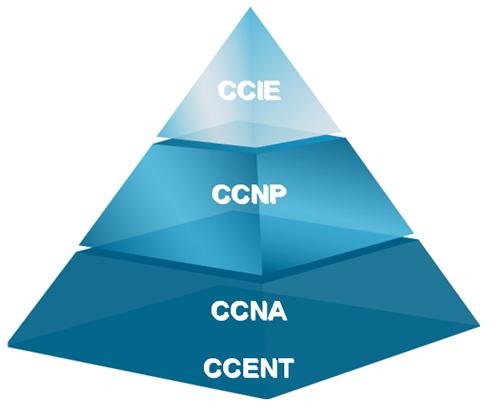Cisco certifications have been a reliable name when it comes to sharpening the skills of IT professionals and making them industry ready for the job positions of all hues. These certifications have also caught up with the rapidly changing industry environment and trained candidates to remain up-to-date as per the new methodologies and technologies. For this, Cisco has come up with colossal modifications in their CCNA, CCNP, and CCIE certifications.
CCNA Track:
Whether it is a fundamental area such as IP addressing or advanced operations such as automation, CCNA certifications provide a kickstart to the career of IT aspirants who can later choose specialization as per their interest.
The first and foremost change that is noticeable in the CCNA course is that previously there were multiple certifications of CCNA, each focusing on a specific area. These certifications have been consolidated into one single certification to make it more rewarding.
Such skills will refine your expertise and help you learn to work on all the elements of an ecosystem. It has removed a crucial hurdle for candidates and recruiters. They can hire individuals with certified knowledge of all the key areas instead of only one functionality. The new CCNA will provide better employability to the hopefuls and decrease the CCNA certification cost as all the modules will be a single solution.
DevNet Track:
A completely new DevNet track has been added to the portfolio of Cisco certifications. It aims toward reaping the synergistic benefits of programming and networking by combining these areas into one pathway. The purpose is to develop a workforce that can combine multiple technologies to design innovative automation solutions.
This tracking program targets professionals with at least one year of hands-on experience with Cisco platforms and APIs. It will train them to perform various operations, from developing a secure and robust application to efficiently managing networks using Cisco infrastructure. In addition, individuals with a background in application development who want to learn networking or network professionals who wish to gain programming knowledge can opt for this track and improve their presence in the industry.
CCNP Track:
This track is for professionals having at least one year of experience in networking and provides them with advanced knowledge on planning, designing, and maintaining complex network solutions.
The below table denotes significant changes in CCNP certifications:
- Up to 23 February 2020 – From 24 February 2020
- CCDP – CCNP Enterprise
- CCNP Routing & Switching – CCNP Enterprise
- CCNP Wireless – CCNP Enterprise
- CCNP Collaboration – CCNP Collaboration
- CCNP Service provider – CCNP Service provider
- CCNP Security – CCNP Security
- CCNP Data Center – CCNP Data Center
- CCNP Cloud – CCNP Data Center
The above overhaul has been implemented to connect the courses with the current requirements of job roles. In addition, Cisco has integrated the CCNP certifications to bundle intertwined operations in one place rather than keeping them in two separate courses. For example, CCNA Routing & Switching and CCNP Wireless are now merged into one certification of CCNP Enterprise so that you are trained in wired and wireless technologies simultaneously. Likewise, CCNP Data Center and CCNP Cloud certifications have been integrated into one course of CCNP Data Center in a similar fashion.
Further, there were four exams in earlier certification, but now they are reduced to two exams, one technology core exam and another concentration exam. The prerequisite of having at least the CCENT to get the CCNP certification has been done away with.
CCIE Track:
This track aims to coach the aspirant to be a leader in the IT field and support his skills throughout the product’s lifecycle, i.e., from planning to optimization in the dynamic landscape of networking technology. Furthermore, it sets the candidate apart from others and communicates the expertise that the holder of this credential carries. The alterations brought by Cisco in the CCIE track are enlisted in below table:
- Up to 23 February 2020 – From 24 February 2020
- CCIE Routing & Switching – CCIE Enterprise Infrastructure
- CCIE Wireless – CCIE Enterprise Wireless
- CCIE Service Provider – CCIE Service Provider
- CCIE Data Center – CCIE Data Center
- CCIE Security – CCIE Security
- CCIE Collaboration – CCIE Collaboration
In the new system, you will be required to pass the CCNP core exam and lab tests instead of writing a dedicated CCIE exam. In addition, you have to recertify your CCIE certification every three years. The CCIEs that maintain their status as per the requirements of Cisco for 20 years can have lifetime free tenure.
After analyzing the above changes, it is evident that Cisco has paid heed to the demands of vendors and individuals and come up with stark differences that add value to certification and place the professional on the top ladder of the hierarchy when it comes to IT skills. These changes were much needed and long-awaited. The new certification system refines the redundancy that individuals previously had to go through to acquire multiple skills and serves as a comprehensive solution to the requirements of new-age IT professionals.






